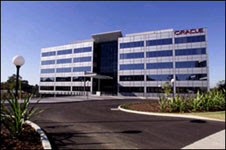
HOT NEWS!!!!!
Real Application Testing Capture backported to 9i.
Oracle Real Application Testing includes two solutions to test the effect of system changes on real-world applications, Database Replay and SQL Performance Analyzer. Database Replay enables you to effectively test system changes in test environments by replaying a full production workload on the test system to help determine the overall impact of the change.
To assist the customers in upgrading to 11g the ‘Capture’ portion of Database Replay will be backported to 9.2 (and 10.2). The patch will be made available for 9.2.0.8. For 10g patches will be made available for 10.2.0.2 and 3 and is already included in the 10.2.0.4 and subsequent patchsets.
Again!!!!!! For 9i/10g it is the CAPTURE component only, but can help 9i customers upgrade to 10g by capturing your SQL trace. The trace files are then imported into 11g and from there you can send the SQL to 10g (10.2) to execute and collect the stats. You then reload those stats into 11g and compare with the SQL Performance Analyser.
To assist the customers in upgrading to 11g the ‘Capture’ portion of Database Replay will be backported to 9.2 (and 10.2). The patch will be made available for 9.2.0.8. For 10g patches will be made available for 10.2.0.2 and 3 and is already included in the 10.2.0.4 and subsequent patchsets.
Again!!!!!! For 9i/10g it is the CAPTURE component only, but can help 9i customers upgrade to 10g by capturing your SQL trace. The trace files are then imported into 11g and from there you can send the SQL to 10g (10.2) to execute and collect the stats. You then reload those stats into 11g and compare with the SQL Performance Analyser.
If you want more information call me Barry Matthews 02 9476 4478




